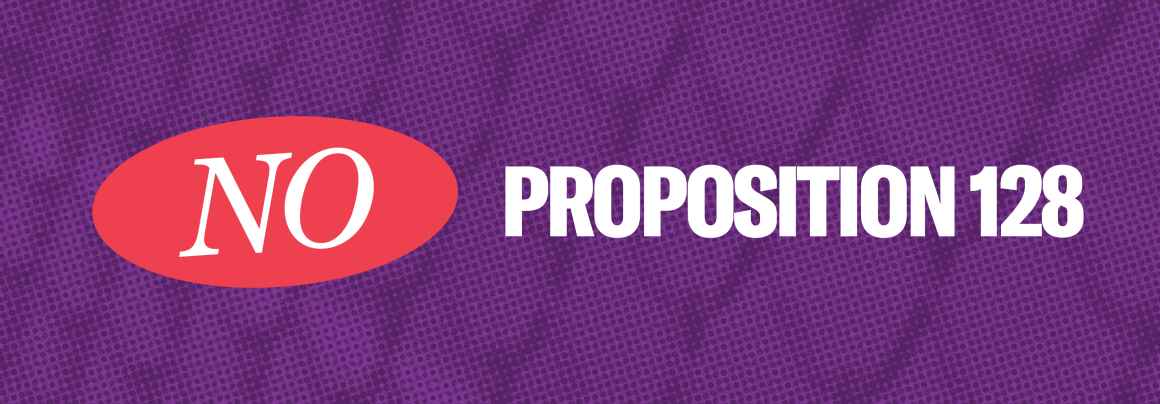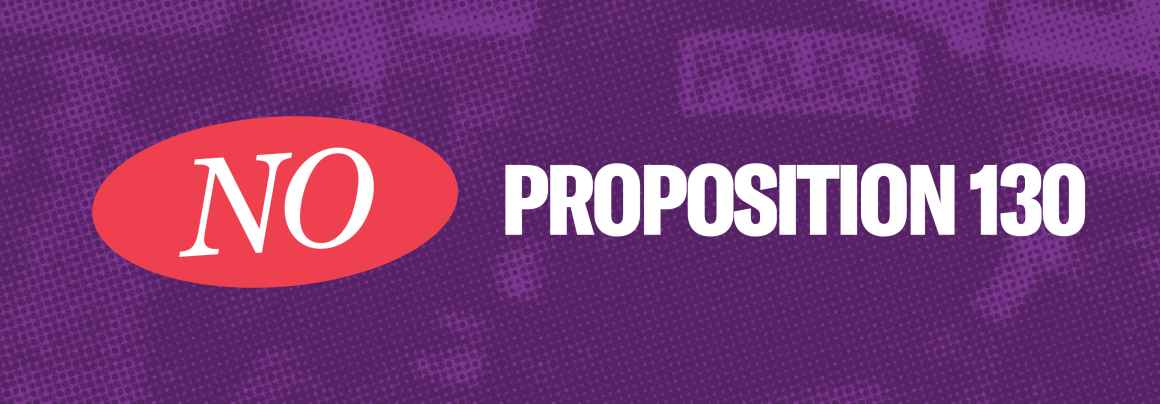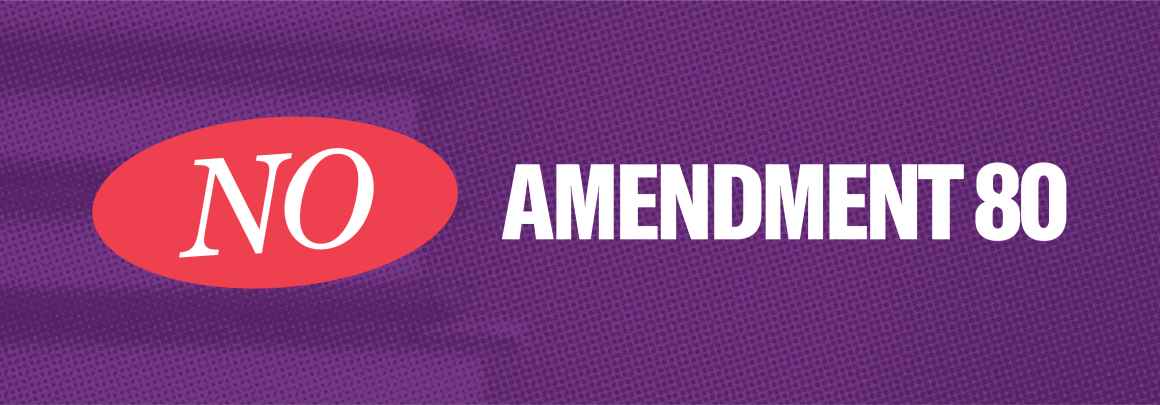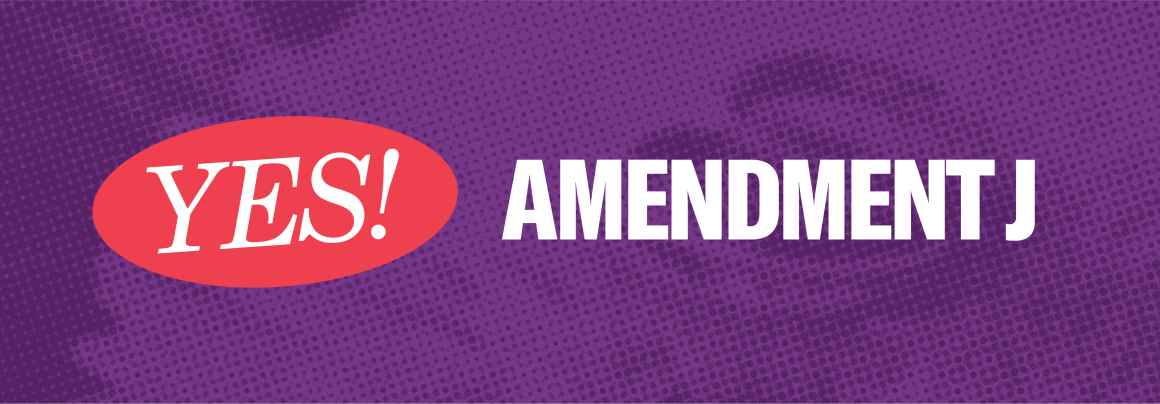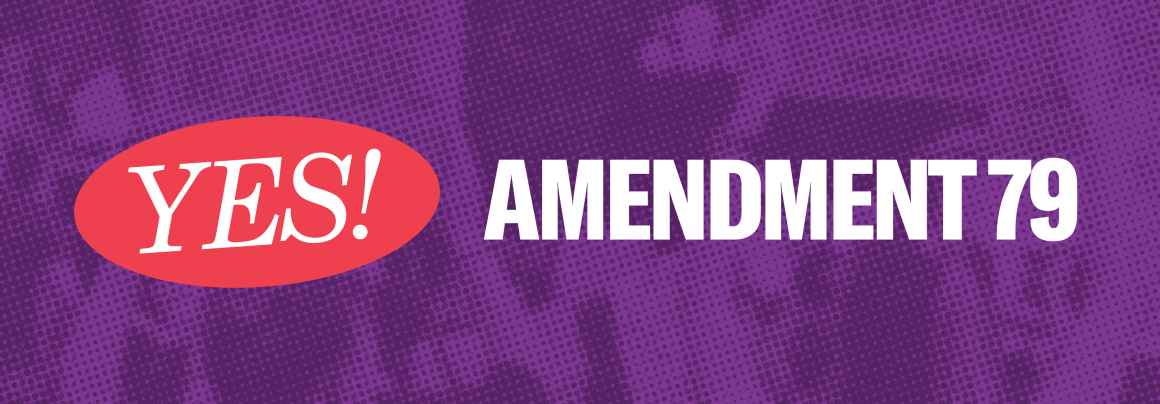Ballot initiatives provide Colorado voters the opportunity to participate in direct democracy by voting specifically on policies and not just politicians. We’re calling on voters from across Colorado to unite against extremism like Project 2025 and make our state a safe haven for civil rights, we can vote for state and local ballot initiatives that give Colorado an opportunity to become a national leader in defending and expanding our hard‐won rights.
There are three ballot measures the ACLU of Colorado is currently opposing.
Each of these measures is connected to the same network of extremists behind Project 2025. These wolves in sheep's clothing measures use deceptive language to push their anti-civil rights agendas.
Proposition 128 appears to be a ‘tough on crime’ policy that increases the amount of time someone is incarcerated before possibility of parole for certain violent offenses, but it will not reduce crime. Instead, it will increase state spending on prisons, decrease safety for wardens, and jeopardize ‘good behavior’ incentives. This proposition is designed to keep many of those who are least likely to re-offend in prison for an extended time, increasing the population and cost of prisons in Colorado. Operatives behind this measure seek to scare voters rather than offer solutions that would address the root causes of repeated criminal activity or threats to public safety. In addition to an immediate and ongoing increase in prison costs, this policy would decrease safety for people who are incarcerated by delaying the earned time credit which incentivizes people to participate in education, mental health, and other rehabilitation programs while in prison.
Proposition 130 falsely claims to fund first responders but restricts the funds to local law enforcement only – not fire fighters, EMTs, or mental health professionals. Colorado already allocates more funding to law enforcement per capita than 75 percent of states in the U.S., according to U.S. Census Bureau data. Yet, this measure diverts even more funding to local law enforcement at the expense of other essential services that are proven to increase and support public safety, such as education resources, mental health services, co-responder programs, and community development. The proposed government funding mandated by this measure does not include any oversight and cannot be used for alternative responses or diversion programs.
School choice already exists in Colorado and has been legally protected since 1994. Colorado parents already have the right to send their children to any public, charter, private, or home school they want. Amendment 80, however, is a trojan horse that pretends to be something it is not. Disguised as a measure seeking to protect "school choice," Amendment 80 attempts to create a foothold that could lead to a statewide voucher program. Voucher programs use public taxpayer dollars to bankroll and fund private schools. They divert critical resources from already underfunded public schools and funnel them to private schools that discriminate against students and families and do not have to meet state education standards or serve all students. Public schools serve 95% of our kids and families, and we must not jeopardize the education of the vast majority of our kids to benefit the wealthy few who are already enrolled in private school.
Additionally, if Amendment 80 passes, its proponents will use the new constitutional right of a parent to direct their child's education to attempt to justify book banning, to remove race, ethnicity, or sex education from school curriculum, to sue schools for following state non-discrimination laws, and to interfere with school activities in countless other ways.
Keep public funds in public schools and keep extremists who support censorship out of Colorado classrooms by voting NO on this measure.
Two statewide ballot measures the ACLU of Colorado is supporting will help codify privacy and autonomy into law.
By passing these measures, Coloradans’ freedoms will be better insulated from future U.S. Supreme Court decisions that negatively impact the civil rights and civil liberties of all Coloradans.
The Colorado Constitution currently includes an amendment that bans same-sex marriage in the state. Amendment J affirms that Colorado supports same-sex marriage by officially and permanently repealing the ban in the state Constitution. This will ensure that Colorado can protect marriage rights in the face of any future rollbacks. Vote yes to protect the freedom to marry in Colorado.
Everybody should be free to make their own decisions about pregnancy and abortion, free from interference from politicians. Amendment 79 codifies abortion, IVF, and birth control access into the Colorado Constitution. Vote yes to enshrine the rights of anybody in our state borders, no matter their insurance carrier, to access this essential healthcare, privately and without prosecution.
